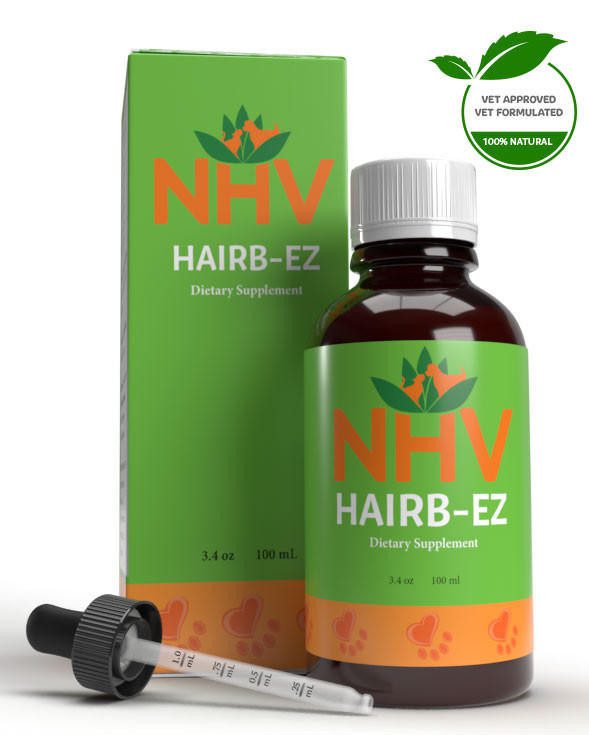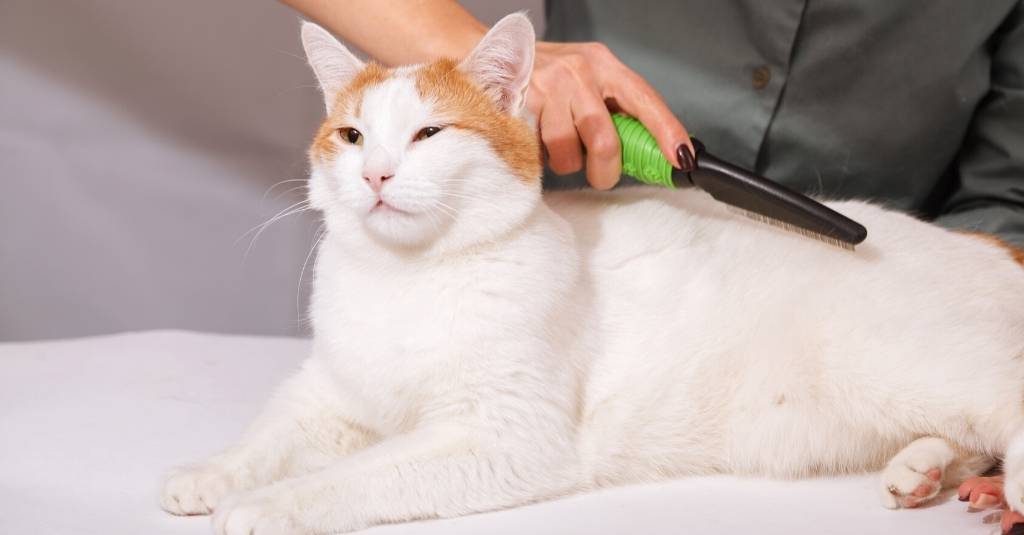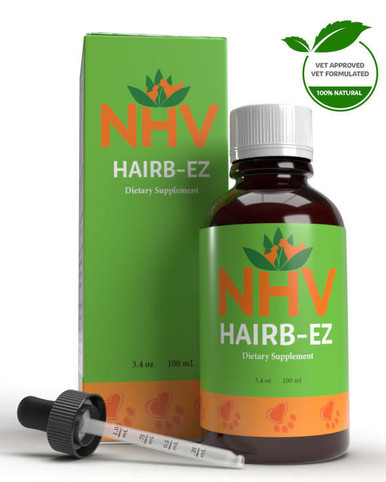hairball support

free shipping over SGD 134.95 (USA & Canada)
1-877-937-4372 the pet expert hotline


It’s Hairball Awareness Day! Ok, we know, it’s really not that exciting to get out of bed and step in the slimy surprise or watch your pet hunched over as their body performs a worm-like motion to expel that lovely little gift. But there are a few things you might not know about hairballs, so we thought we’d share.
Being natural groomers of lots and lots of wonderfully soft fur, cats ingest the dead, loose hair.
The cause of hairballs in cats is a bit more obvious than in dogs. Being natural groomers of lots and lots of wonderfully soft fur, cats ingest the dead, loose hair. Normally it passes through the gastrointestinal tract and comes out in the stool. However, some cats, even shorthairs, seem to have tender tummies. Also, many cats have been bred to have much longer coats over the years than nature would have intended. This can cause excessive hair to collect in the stomach, and when too much hair collects, it may not pass through the gut. Instead, it irritates the stomach and ends up being forced out as a nice little present for their parents.
Hairballs in dogs are much rarer and can often be the result of an underlying cause. Dog parents dealing with hairball issues should speak to their vet to see if your dog is suffering from a skin allergy or parasitic infestation, which might be causing an increase in licking or gnawing. Treating the source of the affliction will most likely eliminate the resulting hairballs. If an underlying condition does not seem to be the cause, your vet may recommend a laxative or even a temporary dietary change to help your pup pass the excess hair collecting in their stomach.
While an occasional hairball is no cause for alarm, pets that vomit up a hairball more than once or twice a month should probably see a veterinarian for a thorough exam to ensure that it is just hairballs and not due to something more serious.
For more information about hairballs, hairball prevention, and recommendations for seeing your vet, check out our blog written by Holistic Veterinarian Dr. Hillary Cook.
hairball support

Cat Hairball Remedy
buy 2 and save SGD 3.95
3 month supply for a small to medium size pet.
Hairb-Ez is a natural cat hairball remedy that helps your cat to pass indigestible hair from its system and reduces regurgitated hair. It also


Hairb-Ez is a natural cat hairball remedy that helps your cat to pass indigestible hair from its system and reduces regurgitated hair. It also

Help eliminate nasty hairballs and resulting constipation with Hairb-Ez, an all-natural herbal cat hairball remedy that helps unblock loose hair and keep it from forming into balls that become lodged in your cat’s stomach. Hairballs result from frequent grooming with the tongue and are common in long and medium-haired cats.
Hairb-Ez helps to dissolve ingested hairballs. It contains a gentle laxative herb as well as herbs that help relieve discomfort and bloating. Read how NHV Hairb-Ez helped Tatiana the kitty who had terrible bouts of hairballs until NHV Hairb-Ez.
This formula can also be used for dogs who may get hairballs, though this is a much rarer condition in dogs, and underlying causes should be looked at by your vet. For more tips on hairballs, visit Dr. Cook’s Vet Talks blog.
Licorice – Has mild laxative properties that support proper digestion. It is also a powerful anti-inflammatory herb that also has the ability to prevent free radical damage. It is also beneficial for the liver.
Cascara Sagrada – The cascarosides found in this bark have a cathartic action that causes the large intestine to contract and form a bowel movement. Cascara sagrada is widely used in veterinary medicine to help with constipation.
Oregon Grape – Improves digestive efficiency by increasing bile production and flow, which stimulates the liver. Oregon grape also helps against microorganisms that help combat fungal and bacterial infections.
Ginger – Helps cleanse the bowels and kidneys and stimulates digestion. It is also helpful against discomfort and helps expel internal gas, and aids in reducing nausea.
Raspberry – The tannins in raspberry help control and balance the laxative effects of HairB-Ez. Raspberry leaf also has astringent, anti-inflammatory properties and is rich in vitamin C.
Lobelia – Contains mucous-thinning properties that help relieve bowel spasms.
Chinese Rhubarb – Strengthens the gastrointestinal tract.
Select your pet's weight to determine the correct dose.
To be taken twice daily. Determine your pet’s weight and then use the easy chart below to determine the correct dose. This is the minimum dosage.
Pet's Weight Dosage
0 - 15 lb = 0.5 ml
16 - 30 lb = 1.0 ml
31 - 45 lb = 1.5 ml
46 - 60 lb = 2.0 ml
61 - 75 lb = 2.5 ml
Over 75 lb = 3.0 ml
For small animals (rabbits, ferrets), avians and reptiles use 1 drop for every 2 lb of body weight.
How to Administer
Shake well before use. The easiest method is to use the dropper provided and place the drops into your pet’s food or favorite treat. You can also use the dropper and squirt directly into the pet’s mouth. Some pets can be finicky. If this occurs, consider hiding the drops in foods most pets love, such as fish, chicken, yogurt, or a favorite treat. If your pet only eats dry food, then soak a few kibbles at feeding time.
For Best Results
Herbal dietary supplements are beneficial to the health and well-being of your pet and are safe for long-term use. Every pet responds to natural herbal supplements differently, therefore it is important to be consistent and administer the product daily. Supplements generally take two to four weeks to take effect, however this will vary from one animal to the next.
Product Storage
All NHV Natural Pet Products are pure herbal extracts and contain no artificial additives, preservatives or coloring. Shelf life after opening is 6 months and must be refrigerated after opening.
Cautions and Contraindications
Do not use Hairb-Ez in pregnant or nursing animals. Speak to your vet before using our products. A second visit is recommended if your pet’s condition does not improve, or deteriorates after continued use of the supplements.
All information provided by NHV Natural Pet Products is for educational purposes only.
Help eliminate nasty hairballs and resulting constipation with Hairb-Ez, an all-natural herbal cat hairball remedy that helps unblock loose hair and keep it from forming into balls that become lodged in your cat’s stomach. Hairballs result from frequent grooming with the tongue and are common in long and medium-haired cats.
Hairb-Ez helps to dissolve ingested hairballs. It contains a gentle laxative herb as well as herbs that help relieve discomfort and bloating. Read how NHV Hairb-Ez helped Tatiana the kitty who had terrible bouts of hairballs until NHV Hairb-Ez.
This formula can also be used for dogs who may get hairballs, though this is a much rarer condition in dogs, and underlying causes should be looked at by your vet. For more tips on hairballs, visit Dr. Cook’s Vet Talks blog.
Licorice – Has mild laxative properties that support proper digestion. It is also a powerful anti-inflammatory herb that also has the ability to prevent free radical damage. It is also beneficial for the liver.
Cascara Sagrada – The cascarosides found in this bark have a cathartic action that causes the large intestine to contract and form a bowel movement. Cascara sagrada is widely used in veterinary medicine to help with constipation.
Oregon Grape – Improves digestive efficiency by increasing bile production and flow, which stimulates the liver. Oregon grape also helps against microorganisms that help combat fungal and bacterial infections.
Ginger – Helps cleanse the bowels and kidneys and stimulates digestion. It is also helpful against discomfort and helps expel internal gas, and aids in reducing nausea.
Raspberry – The tannins in raspberry help control and balance the laxative effects of HairB-Ez. Raspberry leaf also has astringent, anti-inflammatory properties and is rich in vitamin C.
Lobelia – Contains mucous-thinning properties that help relieve bowel spasms.
Chinese Rhubarb – Strengthens the gastrointestinal tract.
Select your pet's weight to determine the correct dose.
To be taken twice daily. Determine your pet’s weight and then use the easy chart below to determine the correct dose. This is the minimum dosage.
Pet's Weight Dosage
0 - 15 lb = 0.5 ml
16 - 30 lb = 1.0 ml
31 - 45 lb = 1.5 ml
46 - 60 lb = 2.0 ml
61 - 75 lb = 2.5 ml
Over 75 lb = 3.0 ml
For small animals (rabbits, ferrets), avians and reptiles use 1 drop for every 2 lb of body weight.
How to Administer
Shake well before use. The easiest method is to use the dropper provided and place the drops into your pet’s food or favorite treat. You can also use the dropper and squirt directly into the pet’s mouth. Some pets can be finicky. If this occurs, consider hiding the drops in foods most pets love, such as fish, chicken, yogurt, or a favorite treat. If your pet only eats dry food, then soak a few kibbles at feeding time.
For Best Results
Herbal dietary supplements are beneficial to the health and well-being of your pet and are safe for long-term use. Every pet responds to natural herbal supplements differently, therefore it is important to be consistent and administer the product daily. Supplements generally take two to four weeks to take effect, however this will vary from one animal to the next.
Product Storage
All NHV Natural Pet Products are pure herbal extracts and contain no artificial additives, preservatives or coloring. Shelf life after opening is 6 months and must be refrigerated after opening.
Cautions and Contraindications
Do not use Hairb-Ez in pregnant or nursing animals. Speak to your vet before using our products. A second visit is recommended if your pet’s condition does not improve, or deteriorates after continued use of the supplements.
All information provided by NHV Natural Pet Products is for educational purposes only.
Published: April 29, 2016